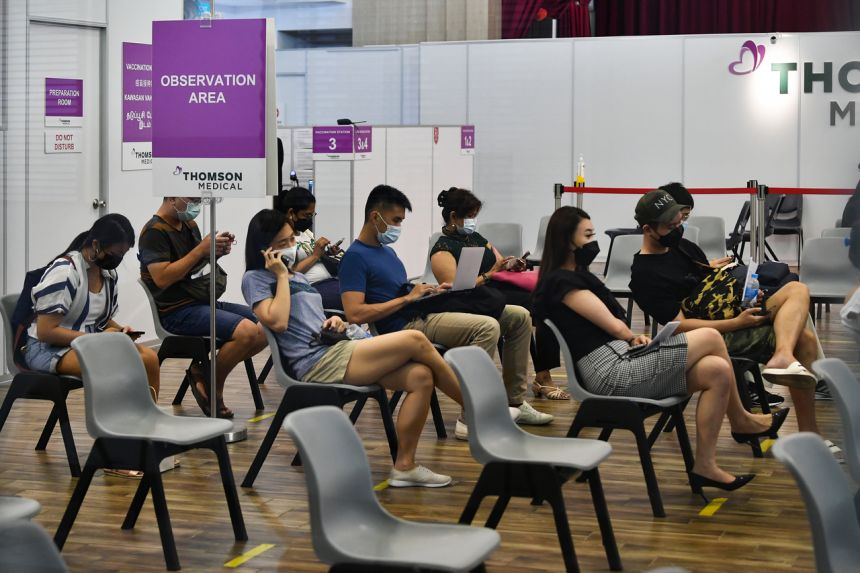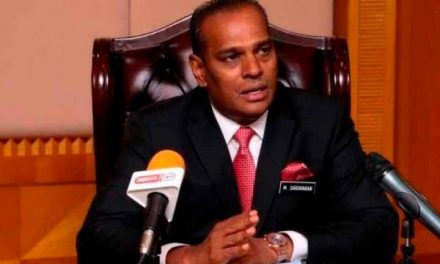SINGAPORE | All employers have been urged to consider implementing a regime for existing employees and new hires to get vaccinated or undergo regular tests.
As part of efforts to boost vaccination rates, employers may also ask staff who are eligible but choose not to be vaccinated to pay for regular testing and exclude them from medical benefits linked to Covid-19.
Employers should not terminate or threaten to terminate the service of an employee on the basis of vaccination status alone. But they can terminate an unvaccinated employee who does not comply with reasonable vaccination-differentiated workplace measures.
The latest guidelines came from Singapore’s tripartite partners on Monday afternoon (Aug 23).
The Ministry of Manpower (MOM), National Trades Union Congress (NTUC), and Singapore National Employers Federation (Snef) said employers should follow the example set by the public service in putting in place the requirement.
The advisory supersedes a previous one released by the three partners in July, which states that employers may make vaccination a requirement for workers in higher-risk environments.
The tripartite partners said that the vaccinate-or-regular-test regime will protect employees and make workplaces more resilient.
They added that employers can require medically eligible workers who are not vaccinated to bear additional costs under the regime.
For example, employers may recover from these employees Covid-19-related expenses, such as the cost of test kits and stay-home notice accommodations, that are incurred over and above those of vaccinated employees.
The tripartite partners said these expenses can be recovered either through salary deductions or requiring these employees to pay the relevant service provider directly.
In terms of leave, they said that unvaccinated employees may be discharged later from treatment, or maybe served with longer periods of movement restrictions compared with vaccinated employees.
Thus, in such situations, employers can deduct the additional days served by a medically eligible but unvaccinated employee from the person’s leave entitlements.
“If leave entitlements have been exhausted, employers may require such an employee to go on no-pay leave,” said the tripartite partners.
Sectors subject to the vaccinate-or-regular-test regime from Oct 1 onwards include healthcare, elder care, and those with settings with children 12 years and below. Sectors that interact with customers in higher-risk mask-off settings, such as dining establishments, gyms, and fitness studios, also have to implement the regime.
MOM, NTUC, and Snef said that employers should prepare their workforce early in the lead-up to Oct 1. They added that employers who adopt the regime should communicate its implications in advance to affected employees and job seekers.
The tripartite partners also said that employers may adopt differentiated workplace measures for vaccinated and unvaccinated employees in their workforce. This may be done in consultation with the unions, if applicable.
On Covid-19 tests, they said that employers which voluntarily adopt the vaccinate-or-test regime can subject unvaccinated employees to more tests than vaccinated employees. The frequency of testing can take reference from the guidelines by the Ministry of Health, which recommends testing twice a week for unvaccinated employees in selected sectors.
For work and social events, employers may require unvaccinated employees to undergo pre-event testing before participating in workplace events. They may also implement reduced group sizes when unvaccinated employees participate in such events.
On the deployment of workers, MOM, NTUC and Snef said: “While employers may continue to deploy unvaccinated employees in higher-risk activities with regular testing, they can also decide whether to redeploy these employees to another job with lower risk of Covid-19 infection, commensurate with the employee’s experience and skills, as per existing redeployment policies.
“If there are no existing redeployment policies within the organization, the terms and conditions for redeployment should be mutually agreed between employers and employees.”
They added that employers can implement other workplace measures of their own accord. But employers must be able to justify to the employees and to the Government in case of a dispute that such measures are reasonable and necessary for business operations. These measures should also better protect the health and safety of all employees.
The tripartite partners also said that all employers may ask employees for their vaccination status for business purposes. Employers implementing the vaccinate or regular test regime can also request employees to produce proof that they have been vaccinated. Employees who do not give proof would be treated as unvaccinated and would be subject to more stringent measures.
MOM, NTUC, and Snef also added that it is still important for all employers and employees to continue observing safe management measures at workplaces, such as mask-wearing.
© 








